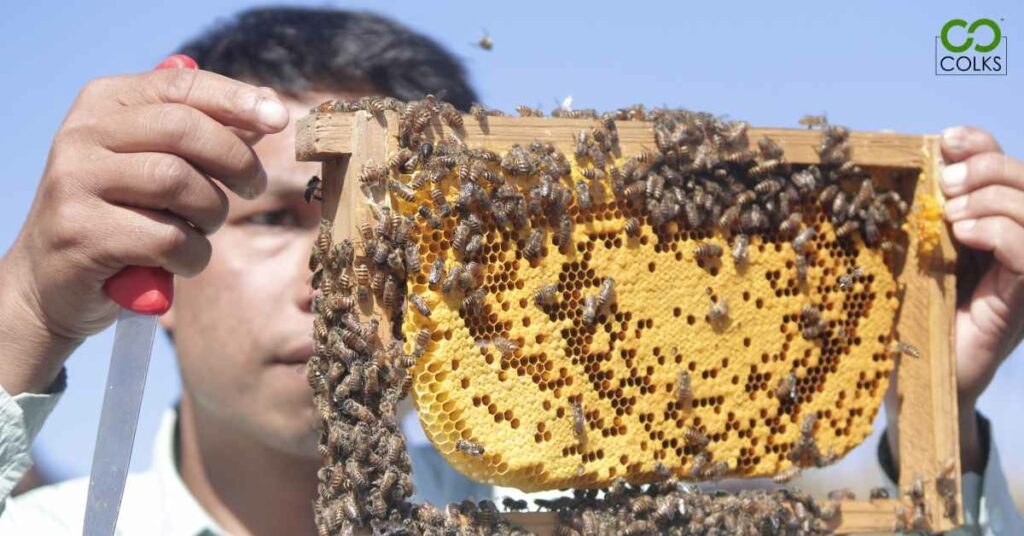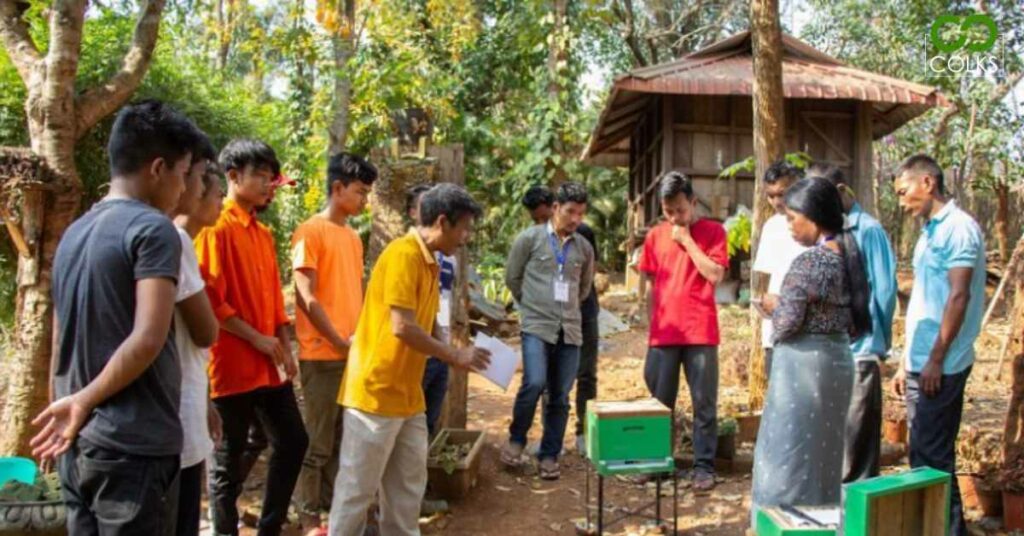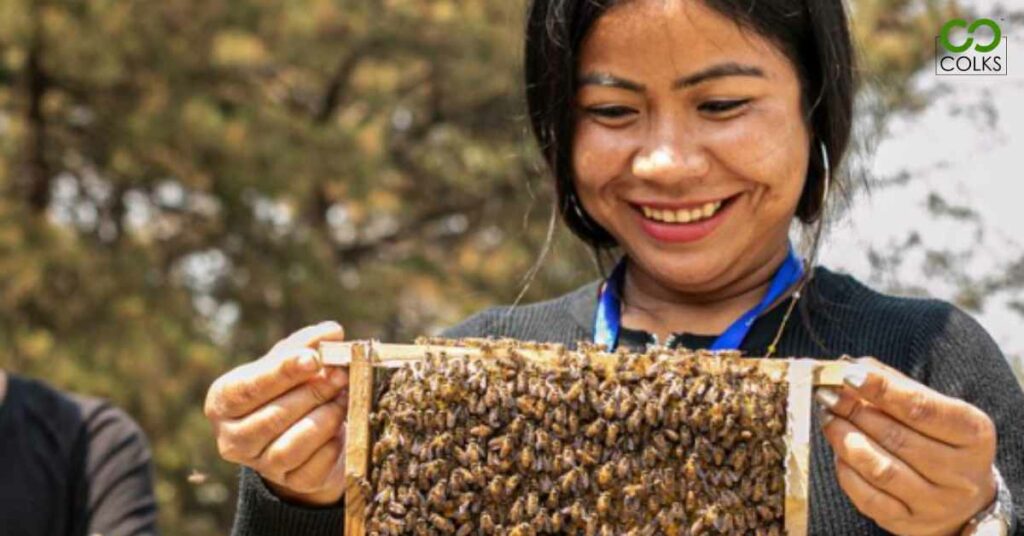Intrigued by the wonders of honeybees? Our Apiculture Training offers you the chance to do just that, providing a comprehensive insight into the fascinating life and vital role of these remarkable creatures.

Honeybees are Early Risers
Picture this: yellow, nectar-loving bees waking up with the sun, grooming themselves like a cat basking in the morning sun. These industrious insects start their day with a refreshing routine before taking flight. As the sun climbs higher above their bee box, the temperature prompts them to venture into the daylight. It's as though they're stretching their limbs and wings, ready to embark on their quest for food.
Nature's Miracle Workers
What's truly amazing is how honeybees, often referred to as "Flying Swiss Army Knives," defy the laws of nature to collect nectar and pollen. They not only ensure their own survival but also play a pivotal role in one of the most crucial ecological services – pollination! Nectar provides them with carbohydrates, while pollen delivers proteins, micronutrients, and essential minerals necessary for their well-being. These tiny insects are, in essence, nature's miracle workers, providing essential nutrients for their sustenance.
Golden Goodness called Honey
As honeybees forage for nectar, they collect the sweet fluid secreted from an array of flowers. This nectar, gets digested in their stomach with the assistance of enzymes, becomes the golden goodness we know as "honey."

But it doesn't stop there. The foraging process honeybees undertake benefits both humanity and mother nature. In the bountiful region of North East India, we're fortunate to have an abundance of flora where the "Apis Cerana Indica" honeybee feels at home. On a single day's foraging mission, these bees collect either pollen or nectar from vibrant, sweet-smelling flowers and plants within a 200- to 300-meter radius of their beehive. As they search for sustenance, they also pollinate a wide variety of crops. Their tiny hind limbs with pollen baskets or the corbicula carry pollen from one plant to another. What's particularly interesting is their polylectic nature, which allows them to pollinate a diverse range of plants, contributing to the phenomenon we know as pollination.
The Return with Pollen Pallets
But the story doesn't end there. Honeybees don't merely transport pollen from plant to plant; they also bring back these "pollen pellets" to their hive for nourishment. At the hive, these pollen pellets are mixed with either nectar or honey to create bee pollen or bee bread, serving as food for the honeybee workers and larvae.
Teamwork in Action
Throughout their lives, honeybees play different roles in their colonies. Worker bees function as a cohesive team, deciding on the best flowers to feed on, visiting up to a hundred flowers a day. As they return to the hive with their bellies full of nectar, their stomachs are hard at work breaking down the nectar's complex sugars into simpler, less crystalline forms, a process known as "inversion."
Upon arriving at the hive, the honeybees communicate with one another through specific sounds and even perform a dance known as the "waggle dance." This dance serves as a means to pass nectar onto young bees called House bees, who are responsible for packing it into hexagon-shaped beeswax honey cells. The nectar is transformed into honey through the warm breeze generated by wing-flapping, followed by sealing the honey cells with fresh beeswax. The result? The golden honey syrup, packed with astounding health benefits, ready for us to enjoy.

Curious About Honeybees?
Are you as captivated by honeybees as we are? If you're keen to learn more about these remarkable creatures and their crucial role in our ecosystem, we invite you to enroll in our Apiculture Training. Dive into the intriguing world of honeybees, their unique behaviors, and the vital function they serve in our environment. Join us as we celebrate the marvels of nature and explore the incredible journey of honeybees.

☏ 03643569329